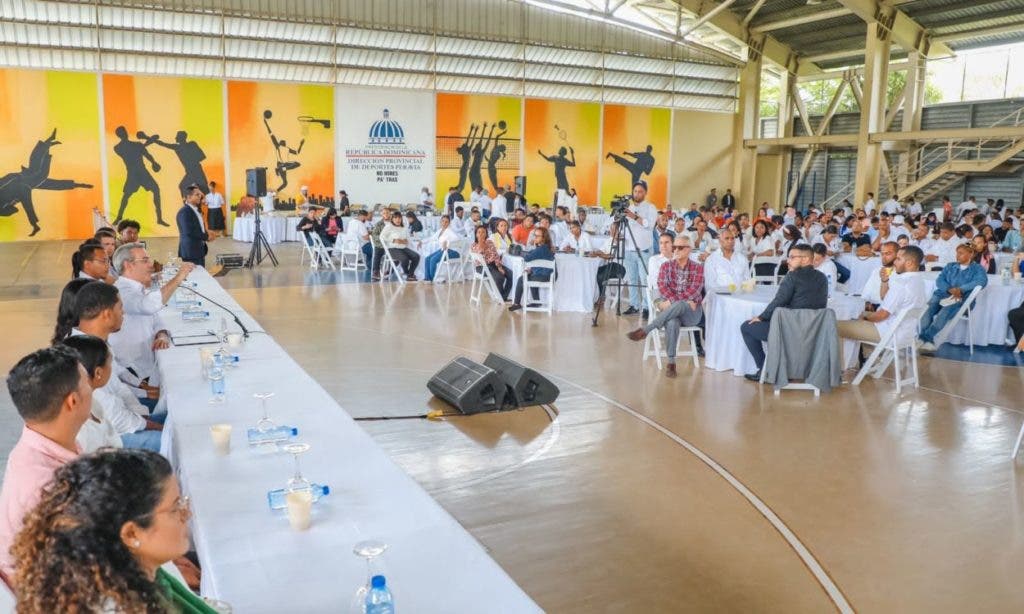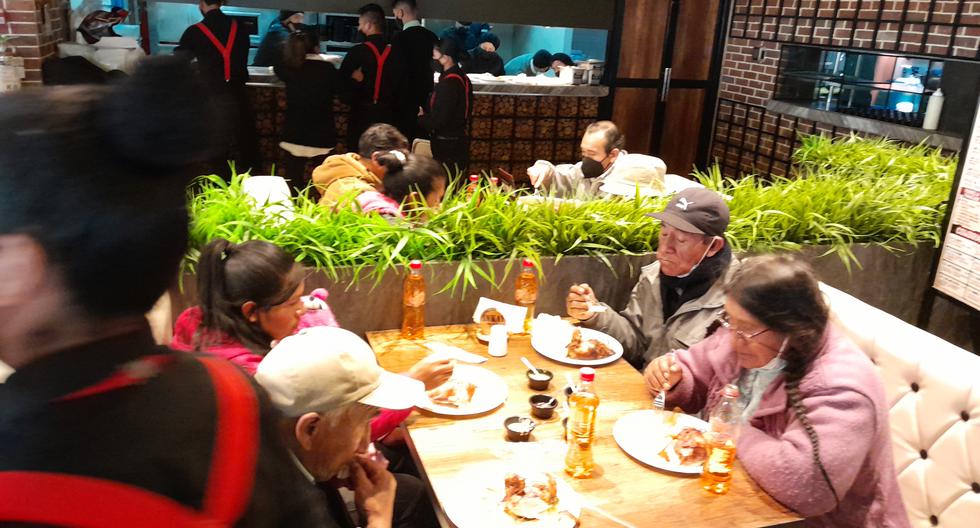Baní, Peravia.- With an investment of RD$312 million, the president Louis Abinader opened this Wednesday a new wastewater plant (Phase I) in the main municipality of Baní, Peravia province.
The head of state, accompanied by the executive director of the National Institute of Drinking Water and Sewage (INAPA), Wellington Arnaud, addressing those present at the event, stated that 87,672 inhabitants will benefit from the treatment plant in the urban area and with a projection of 132,463 by 2048.
Likewise, the president said that for decades the state administration was stopped “making excuses and letting the problems grow.”
Abinader expressed that since he came to the Government he has done so with the commitment to launch all the necessary works to solve the problems that exist in the country.
You may also like: Abinader tries to improve social protection entities
On his side, the executive director of INAPA, specified that the work is of great importance for the Banilejos, since it will prevent diseases and contribute to human development.
The official thanked the support of President Luis Abinader, who since the campaign made the commitment to bring sanitation and drinking water to every Dominican home.
The purpose of the work is to treat, eliminate and/or reduce the concentration of contaminating substances or elements that affect the quality of the water or receiving source.
He argued that the treatment plant was designed for the expected demand according to the coverage of the collector network of the urban area of the city of Baní of about 70 liters per second (70 l/s) Phase I, in terms of the collector and sand trap for a flow expected maximum of 470 liters per second.
Remodeling Hospital Nuestra Señora de Regla
Similarly, the president began this Wednesday the restructuring and equipping of the Hospital Nuestra Señora de Regla de Baní, with an investment of more than 225 million pesos.
This renovation is with the objective of improving the health services received by the population of more than 157 thousand inhabitants of this municipality.
The director of the National Health Service (SNS), Mario Lama, explained that the intervention includes the renovation of 23 clinics, including surgical, pediatric and adolescent clinical specialties, in addition to the areas of vaccination, tuberculosis, sonography, X-rays x, administrative, laundry and kitchen.
Lama explained that on the second floor of the center the surgical block will be restructured with the qualification of three operating rooms, two preparation beds and two post-surgical beds, four beds of the Maternal Intensive Care Unit (UCIM) and 22 double rooms for internment, that would add 44 beds available to users who come to the hospital.
Likewise, he thanked President Luis Abinader for all the transformation he has been carrying out at the national level, more than 70 interventions and more than 300 renovated units in each of the provinces. He also announced that a modern hemodialysis and diabetic foot unit is in the bidding process.
In addition, RD$92,457,879.83 will be allocated to equipment with the aim of equipping the hospital with all the necessary equipment to strengthen the quality of service provision.
Lunch with 400 young entrepreneurs
Later, the president went to the Baní Sports Center, where he had a lunch with 400 young people from the province and listened to their concerns and needs, where he expressed the government’s support.
Likewise, he added that there are works in the sports area that are in tender, already to be built and in the same way he instructed the mayor to make several fields in which the bidding process culminates.
He also said that he will speak with the Ministry of Education to convert the Liceo de Nizao into a Polytechnic. He instructed the Minister of Youth to take the Bandex, Promipymes and Banreservas to facilitate a series of ventures for young people, both in the agricultural, industrial and commercial sectors.
Asphalted
At the end of his agenda in Baní, the president began paving the streets in the Paya sector, with the presence of the Minister of Public Works, Deligne Asención.















